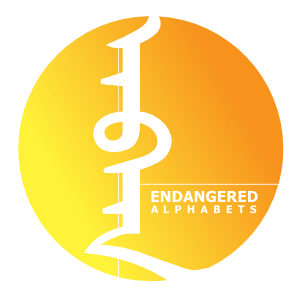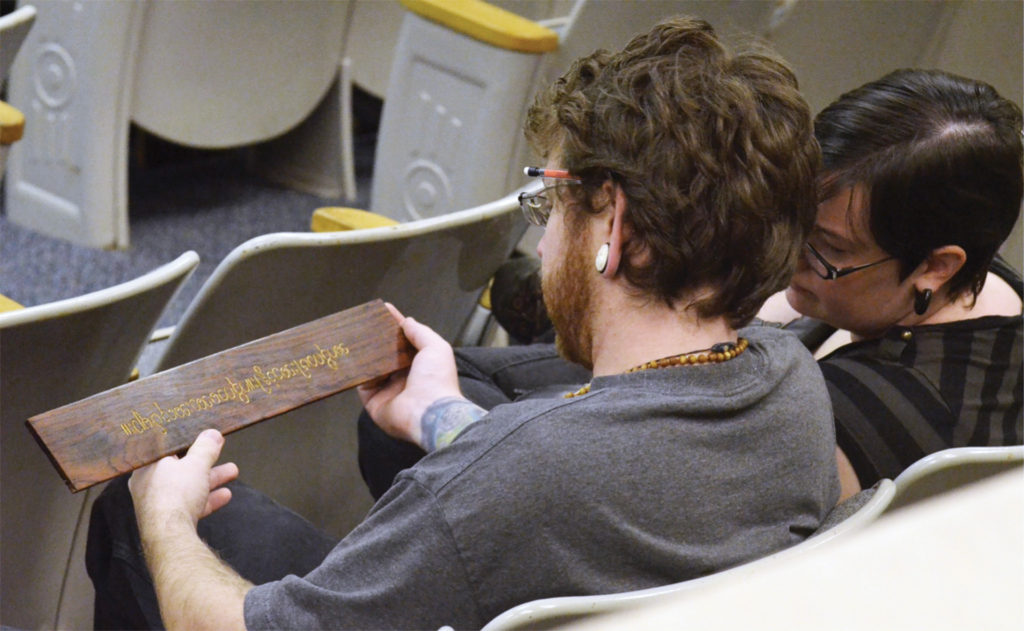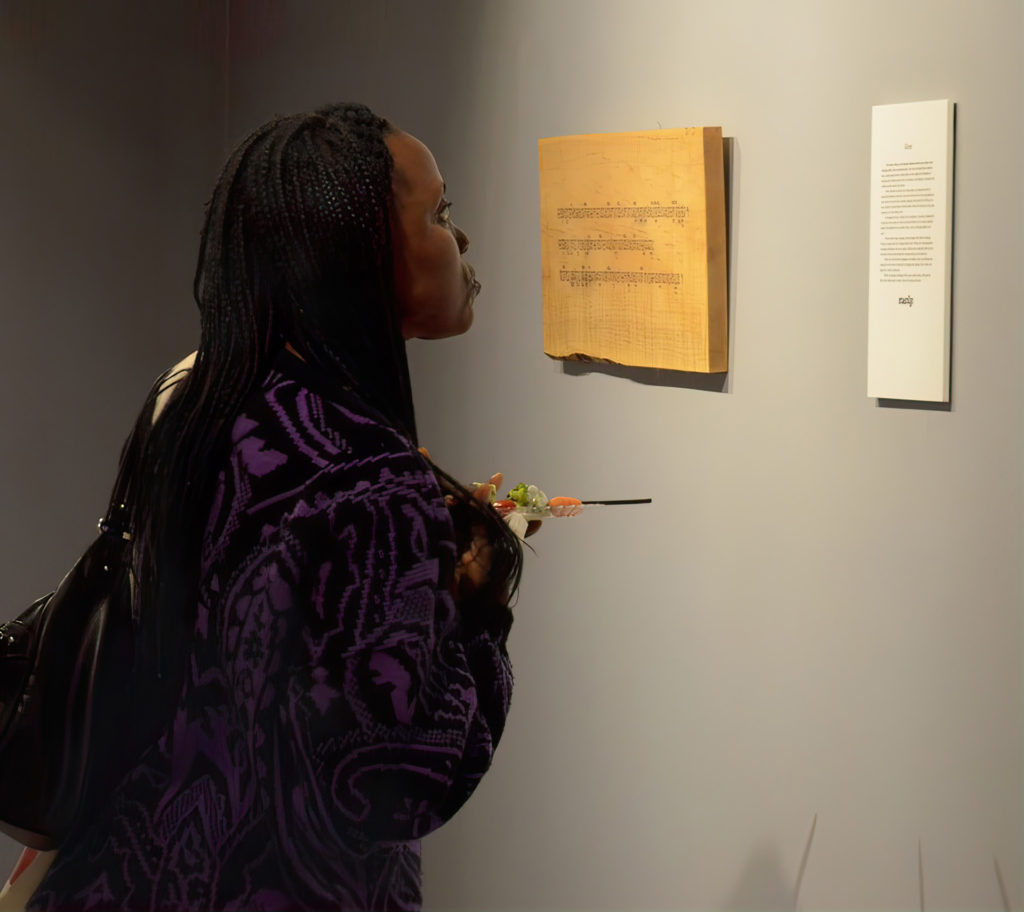One of the central features of our mission is to help the public, especially in the privileged West, to understand the vital relationship between a culture and its script, and vice versa. This in turn explains why script loss and endangerment are so devastating, and the revitalization of traditional scripts or, in many cases, the creation of new scripts are so important.
—Nguyen Tran
This process of education has been one of our principal activities since the very founding of the Endangered Alphabets. As most people have little or no knowledge of most of the world’s minority scripts, a lecture is not enough: people have to see them.
With this in mind, we have delivered exhibition-talks at nearly 200 sites from prestigious universities to nursing homes. These presentations, which have been delivered both in person and online, have often included class visits, hands-on workshops, panel discussions, conference presentations and seminars, and even practical activities in which students created their own alphabets, or did stamping and coloring activities in minority scripts.
Sites visited for such presentations include Cambridge University; Yale; Harvard; First Nations University in Regina, Saskatchewan; the School for Oriental and African Studies in London; Mundolingua in Paris; the Smithsonian Institution; the Library of Congress; and more than 70 local libraries, museums, galleries, retirement communities, and nursing homes.


